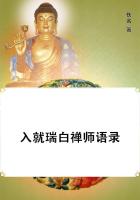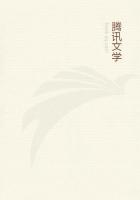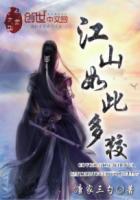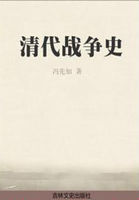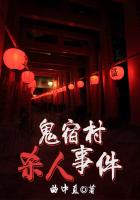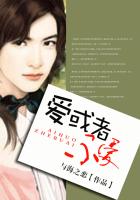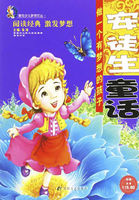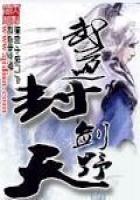In the western islands of Torres Straits a man never mentioned the personal names of his father-in-law, mother-in-law, brother-in-law, and sister-in-law; and a woman was subject to the same restrictions. A brother-in-law might be spoken of as the husband or brother of some one whose name it was lawful to mention; and similarly a sister-in-law might be called the wife of So-and-so. If a man by chance used the personal name of his brother-in-law, he was ashamed and hung his head. His shame was only relieved when he had made a present as compensation to the man whose name he had taken in vain. The same compensation was made to a sister-in-law, a father-in-law, and a mother-in-law for the accidental mention of their names. Among the natives who inhabit the coast of the Gazelle Peninsula in New Britain to mention the name of a brother-in-law is the grossest possible affront you can offer to him; it is a crime punishable with death. In the Banks' Islands, Melanesia, the taboos laid on the names of persons connected by marriage are very strict. A man will not mention the name of his father-in-law, much less the name of his mother-in-law, nor may he name his wife's brother; but he may name his wife's sistershe is nothing to him. A woman may not name her father-in-law, nor on any account her son-in-law. Two people whose children have intermarried are also debarred from mentioning each other's names. And not only are all these persons forbidden to utter each other's names; they may not even pronounce ordinary words which chance to be either identical with these names or to have any syllables in common with them. Thus we hear of a native of these islands who might not use the common words for pig and to die, because these words occurred in the polysyllabic name of his son-in-law; and we are told of another unfortunate who might not pronounce the everyday words for hand and hot on account of his wife's brother's name, and who was even debarred from mentioning the number one, because the word for one formed part of the name of his wife's cousin.
The reluctance to mention the names or even syllables of the names of persons connected with the speaker by marriage can hardly be separated from the reluctance evinced by so many people to utter their own names or the names of the dead or of the dead or of chiefs and kings; and if the reticence as to these latter names springs mainly from superstition, we may infer that the reticence as to the former has no better foundation. That the savage's unwillingness to mention his own name is based, at least in part, on a superstitious fear of the ill use that might be made of it by his foes, whether human or spiritual, has already been shown. It remains to examine the similar usage in regard to the names of the dead and of royal personages.
3. Names of the Dead tabooed.
THE CUSTOM of abstaining from all mention of the names of the dead was observed in antiquity by the Albanians of the Caucasus, and at the present day it is in full force among many savage tribes. Thus we are told that one of the customs most rigidly observed and enforced amongst the Australian aborigines is never to mention the name of a deceased person, whether male or female; to name aloud one who has departed this life would be a gross violation of their most sacred prejudices, and they carefully abstain from it. The chief motive for this abstinence appears to be a fear of evoking the ghost, although the natural unwillingness to revive past sorrows undoubtedly operates also to draw the veil of oblivion over the names of the dead. Once Mr. Oldfield so terrified a native by shouting out the name of a deceased person, that the man fairly took to his heels and did not venture to show himself again for several days. At their next meeting he bitterly reproached the rash white man for his indiscretion; nor could I, adds Mr. Oldfield, induce him by any means to utter the awful sound of a dead man's name, for by so doing he would have placed himself in the power of the malign spirits. Among the aborigines of Victoria the dead were very rarely spoken of, and then never by their names; they were referred to in a subdued voice as the lost one or the poor fellow that is no more. To speak of them by name would, it was supposed, excite the malignity of Couit-gil, the spirit of the departed, which hovers on earth for a time before it departs for ever towards the setting sun. Of the tribes on the Lower Murray River we are told that when a person dies they carefully avoid mentioning his name; but if compelled to do so, they pronounce it in a very low whisper, so faint that they imagine the spirit cannot hear their voice. Amongst the tribes of Central Australia no one may utter the name of the deceased during the period of mourning, unless it is absolutely necessary to do so, and then it is only done in a whisper for fear of disturbing and annoying the man's spirit which is walking about in ghostly form. If the ghost hears his name mentioned he concludes that his kinsfolk are not mourning for him properly; if their grief were genuine they could not bear to bandy his name about. Touched to the quick by their hard-hearted indifference the indignant ghost will come and trouble them in dreams.
The same reluctance to utter the names of the dead appears to prevail among all the Indian tribes of America from Hudson's Bay Territory to Patagonia. Among the Goajiros of Colombia to mention the dead before his kinsmen is a dreadful offence, which is often punished with death; for if it happens on the rancho of the deceased, in presence of his nephew or uncle, they will assuredly kill the offender on the spot if they can. But if he escapes, the penalty resolves itself into a heavy fine, usually of two or more oxen.

